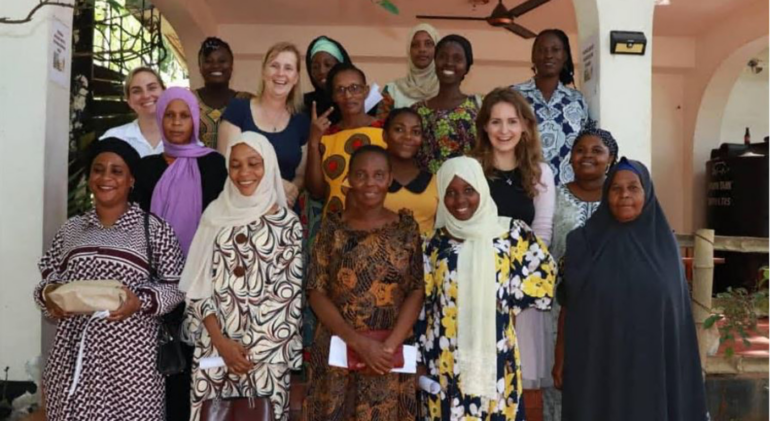Last year, we conducted a research study focused on gaining a deeper understanding of the effectiveness of play-based and trauma-informed teaching practices at an early learning center in Tanzania. The children enrolled in this center had endured various levels of trauma such as the loss of a parent and/or experiences of sexual or physical abuse. The negative behavioral, developmental, and emotional consequences of childhood trauma can persist into adulthood. Therefore, the nongovernmental organization staff at the center employ strategic measures to mitigate the early trauma experienced by these children and create a safe and nurturing environment where young learners can thrive and succeed.
However, traditional parental attitudes and perspectives on education in Tanzania do not typically prioritize play-based learning or the development of social-emotional skills. As a result, the objectives of this study were to assess a train-the-trainer program offered to the NGO staff and caregivers and to explore ways to expand its impact on a larger scale. Identifying approaches to ameliorate the effects of trauma can benefit local children and families by offering resources that can be applied more broadly.
Within the study, training sessions focused on the effects of trauma on cognitive and language development, social-emotional learning, and behavior. Culturally sensitive language and concepts were integrated into the training materials. The training sessions were conducted in English and included a Swahili translator to ensure effective communication. Following the initial training, NGO staff proceeded to train caregivers in the play-based and trauma-informed methodologies.
We observed these training sessions and assessed the caregivers’ receptiveness to this approach. The findings indicated that play-based approaches were well-received, and it became evident that additional training was necessary to provide ideas on how to incorporate everyday items such as rocks or bottle caps into play-based activities.
During focus group discussions and interviews, NGO staff and caregivers emphasized the importance of play-based approaches and their effectiveness in reducing trauma. They shared insights into how these approaches could further aid in the healing process for people, especially children, who have experienced trauma. Engaging in play allows individuals to express and process their emotions, build resilience, and regain a sense of control and safety.
Given the significance of this study and the importance of continued international collaborations, Drs. Green and Torres are currently in the process of developing future trainings with the NGO staff and community members.
Dr. Kate Green’s primary research areas are in early childhood development and cross-cultural development and parenting. Dr. Kelly Torres’ research interests are focused on the implementation of technology into educational settings to enhance student academic outcomes and on various aspects of the motivational influences that may impact second language learning and culture.

